-
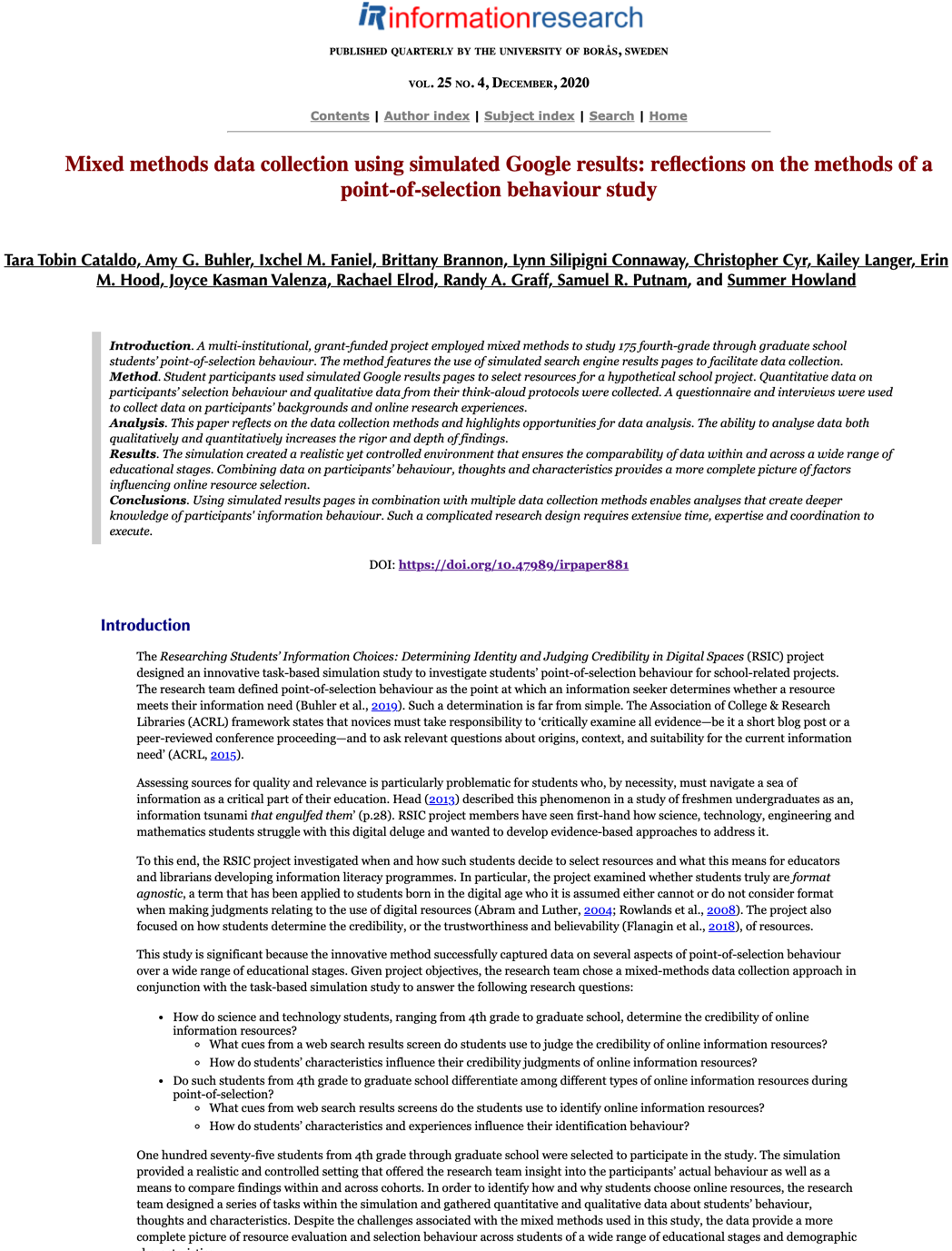
Mixed methods data collection using simulated Google results: reflections on the methods of a point-of-selection behaviour study
16 December 2020
Tara Tobin Cataldo, Amy G. Buhler, Ixchel M. Faniel, Brittany Brannon, Lynn Silipigni Connaway, Christopher Cyr, Kailey Langer, Erin M. Hood, Joyce Kasman Valenza, Rachael Elrod, Randy A. Graff, Samuel R. Putnam, and Summer Howland
A multi-institutional, grant-funded project employed mixed methods to study 175 fourth-grade through graduate school students’ point-of-selection behaviour. The method features the use of simulated search engine results pages to facilitate data collection.
-
Bring Learning to All Library Staff: Scaling and Sustaining Professional Development Content
1 November 2020
Kendra Morgan, Sharon Streams
This chapter describes how WebJunction—a program of OCLC Research that offers a free and open online learning network for those who work in or with libraries—supports the scalability and sustainability of Professional Development. Readers will also get tips for how to make it as accessible and affordable to as many learners as possible.
-
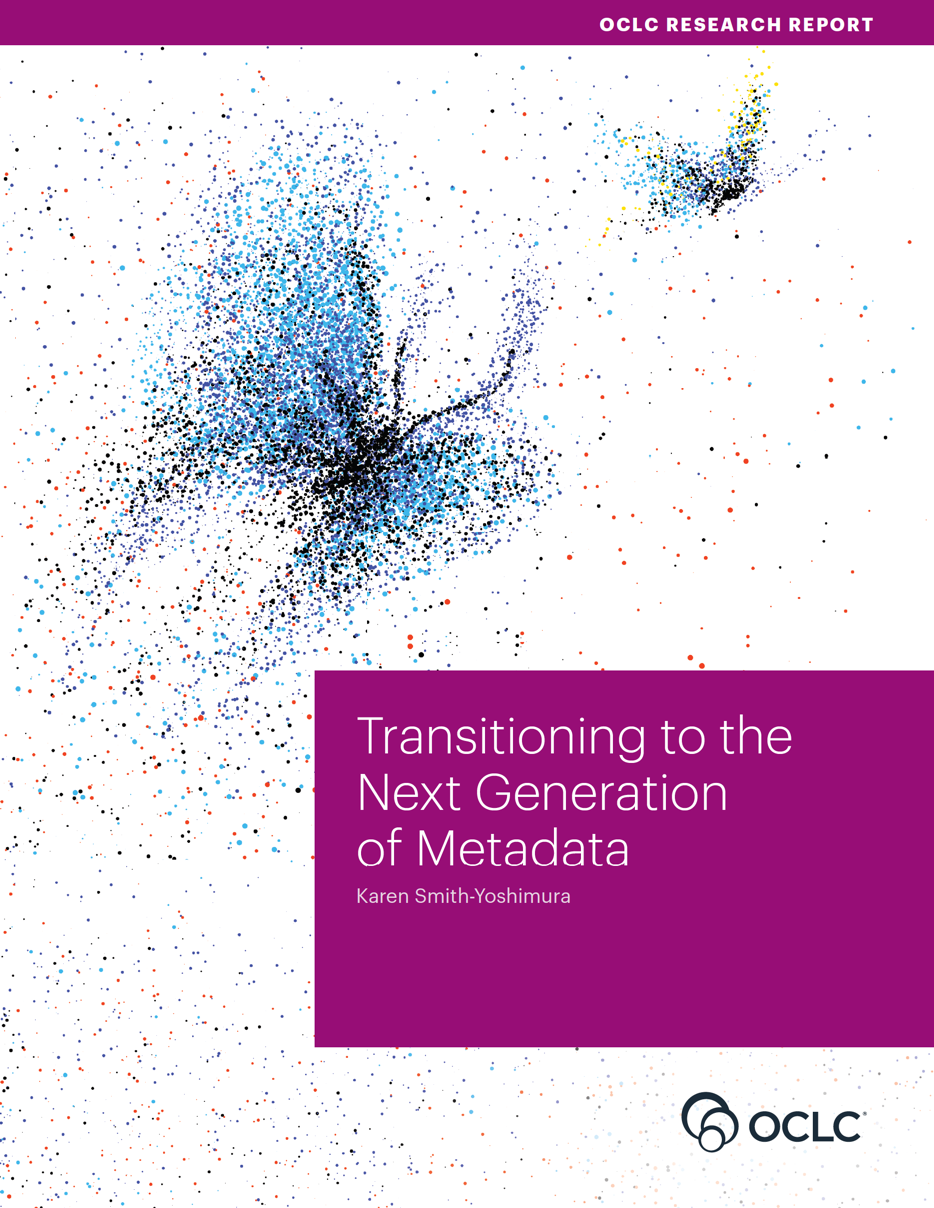
Transitioning to the Next Generation of Metadata
29 September 2020
Karen Smith-Yoshimura
This report synthesizes six years (2015-2020) of OCLC Research Library Partners Metadata Managers Focus Group discussions to trace how metadata services is transitioning into the “next generation of metadata” and its impact on future metadata services and staffing requirements.
-
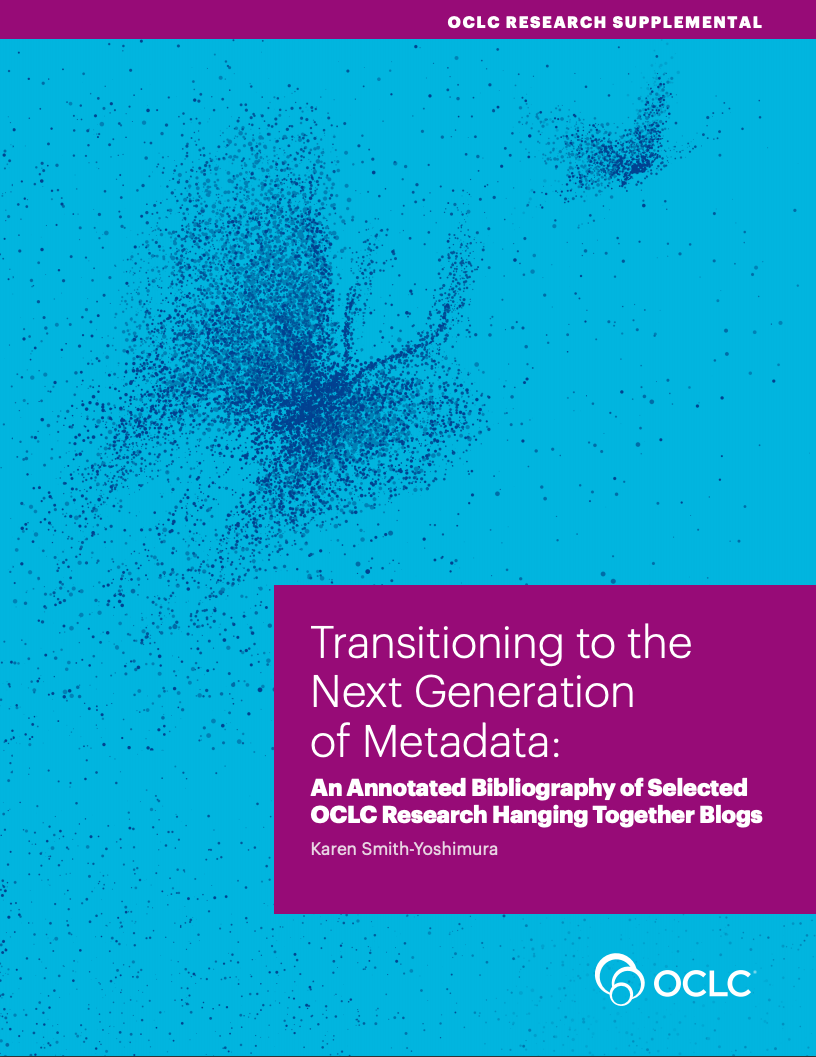
Transitioning to the Next Generation of Metadata - Annotated Bibliography
29 September 2020
Karen Smith-Yoshimura
An annotated bibliography that provides details on blog posts from Hanging Together: The OCLC Research Blog referenced in the Transitioning to the Next Generation of Metadata report.
-
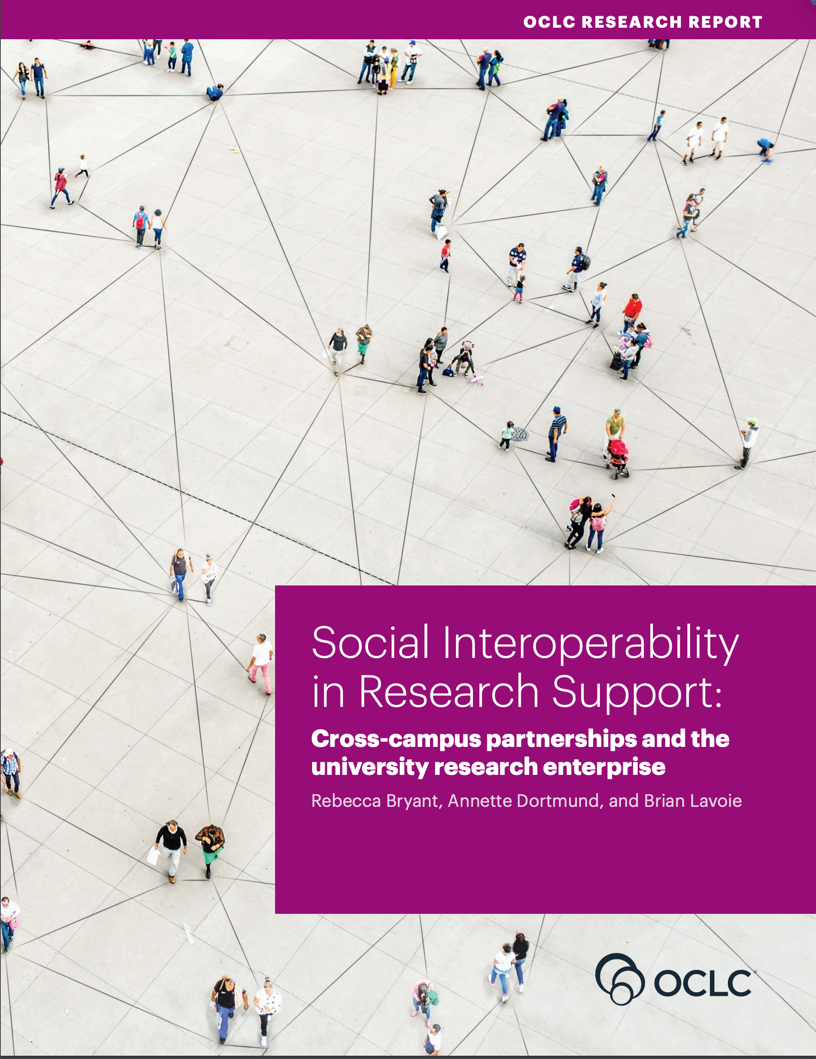
Social Interoperability in Research Support: Cross-campus Partnerships and the University Research Enterprise
20 August 2020
Rebecca Bryant, Annette Dortmund, Brian Lavoie
The report defines social interoperability and describes the network of campus units involved in major areas of university research support services. It concludes by offering recommendations for cultivating successful cross-campus relationships.
-
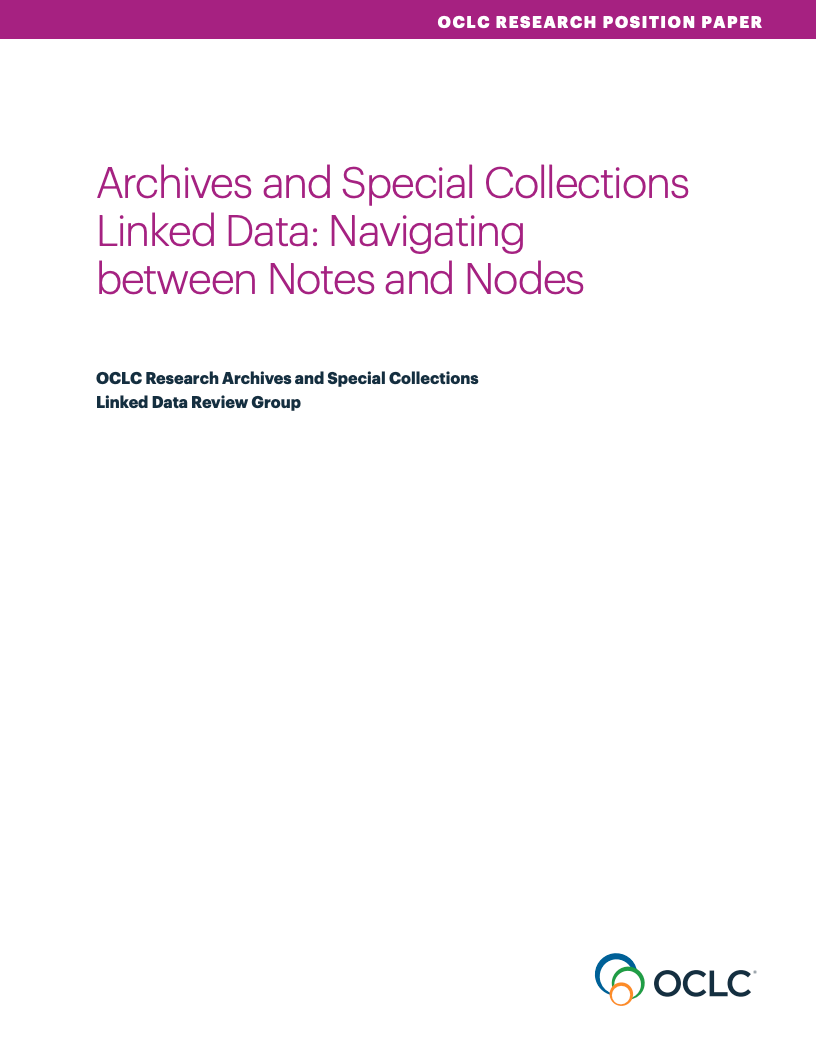
Archives and Special Collections Linked Data: Navigating between Notes and Nodes
21 July 2020
OCLC Research Archives and Special Collections Linked Data Review Group
This publication shares the findings from the Archives and Special Collections Linked Data Review Group, which explored key areas of concern and opportunities for archives and special collections in transitioning to a linked data environment.
-
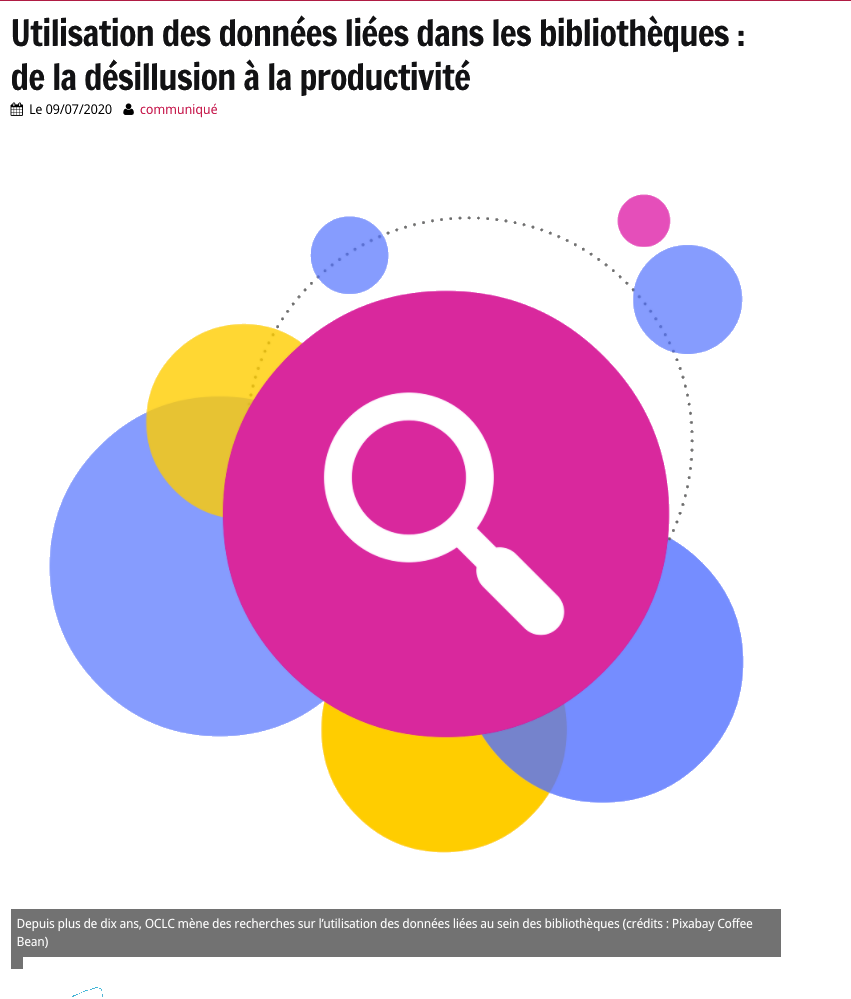
Utilisation des données liées dans les bibliothèques : de la désillusion à la productivité
9 July 2020
Andrew K. Pace
OCLC has been researching the use of linked data within libraries for more than a decade. It is sometimes difficult to know exactly where the value of linked data lies and what benefits we can derive from it. It is wise, therefore, to consider their usefulness from the point of view of library staff. What does "linked data productivity" mean? What would cataloging linked data change for library staff and end users? This article responds to these questions and provides some perspective on the linked data landscape for libraries.
-
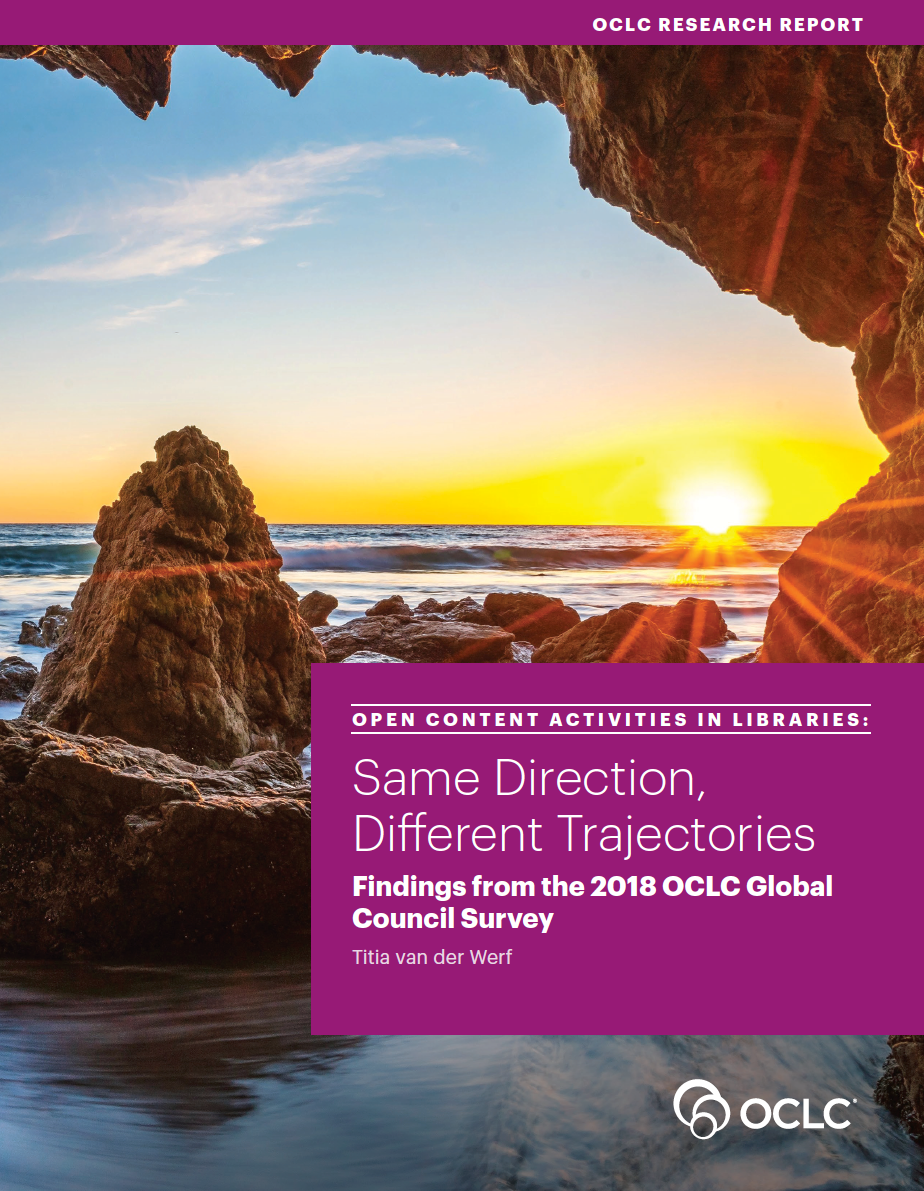
Open Content Activities in Libraries: Same Direction, Different Trajectories — Findings from the 2018 OCLC Global Council Survey
1 July 2020
Titia van der Werf
This report synthesizes findings from the 2018-19 Global Council survey on current and future planned open content activities for a global cohort of research and university libraries.
-
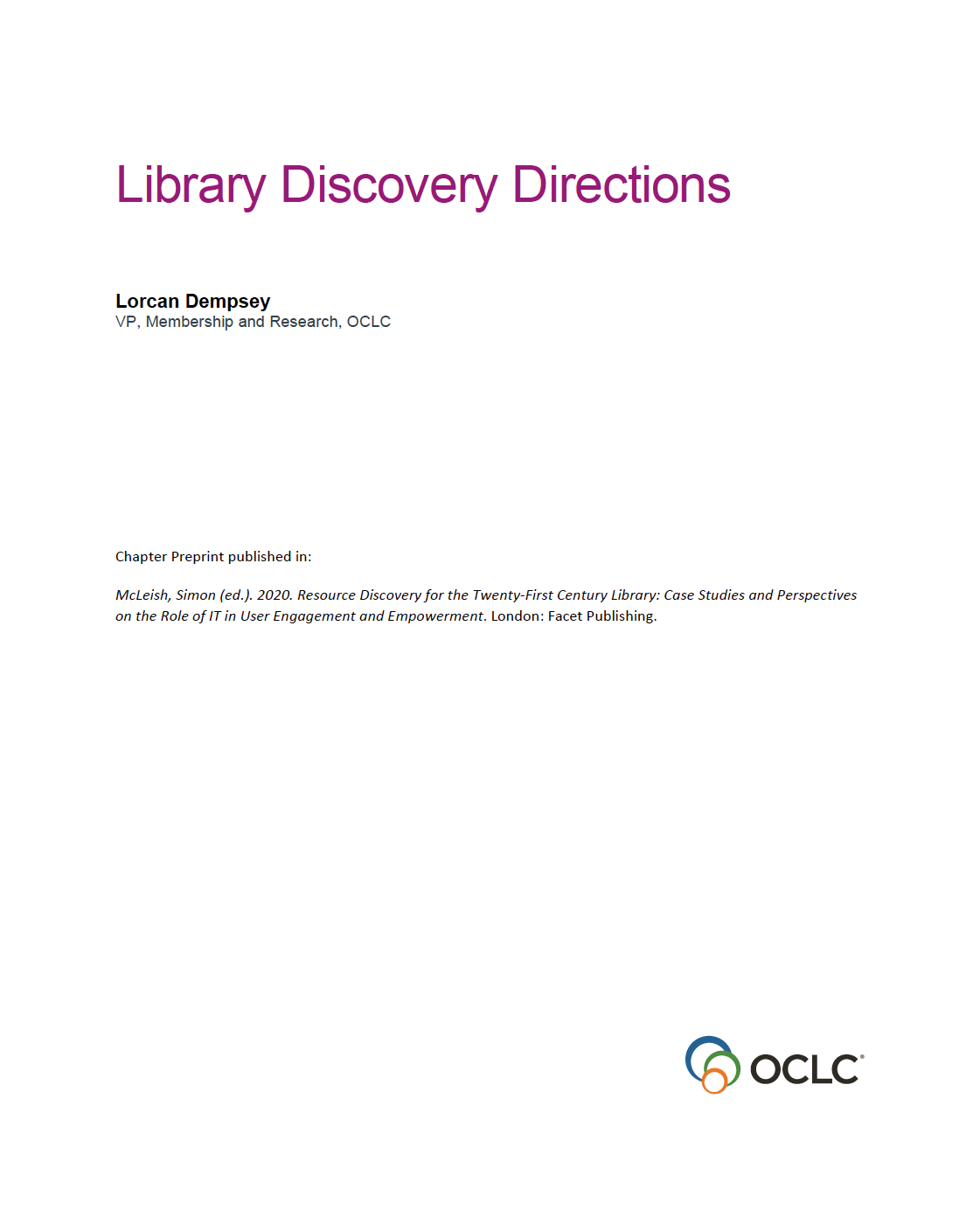
Library Discovery Directions
29 June 2020
Lorcan Dempsey
In this foreword to the edited collection Resource Discovery for the Twenty-First Century Library (2020), Lorcan Dempsey traces shifting trends in the library discovery environment contributing to the diversified scope of resource discovery.
-
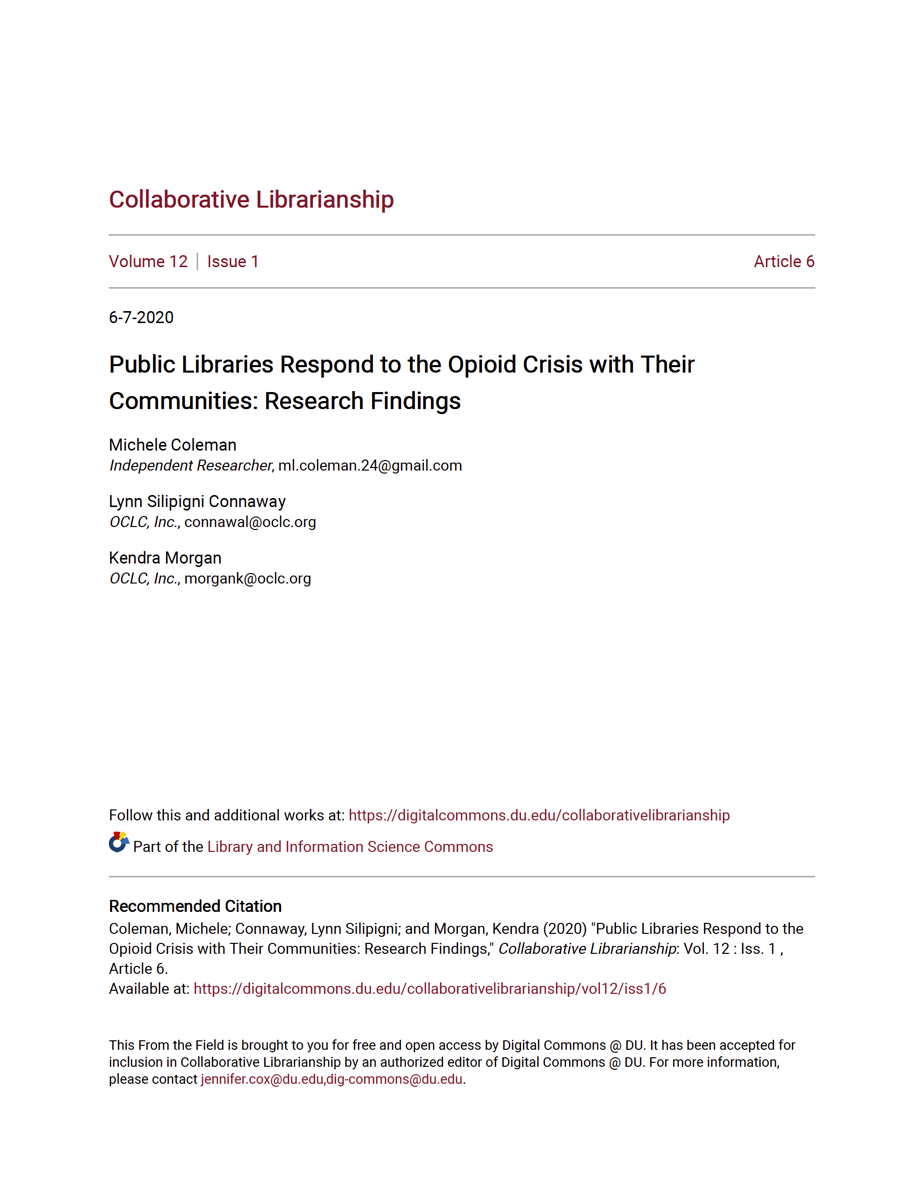
Public Libraries Respond to the Opioid Crisis with Their Communities: Research Findings
7 June 2020
Michele Coleman, Lynn Silipigni Connaway, Kendra Morgan
This article is the follow-up to Public Libraries Respond to the Opioid Crisis in Collaboration with Their Communities: An Introduction, and identifies, synthesizes, and shares knowledge and resources that will help public libraries and their community partners develop effective strategies to work together to address the opioid epidemic in the US.
Publications
Showing 1 - 10 of 16
